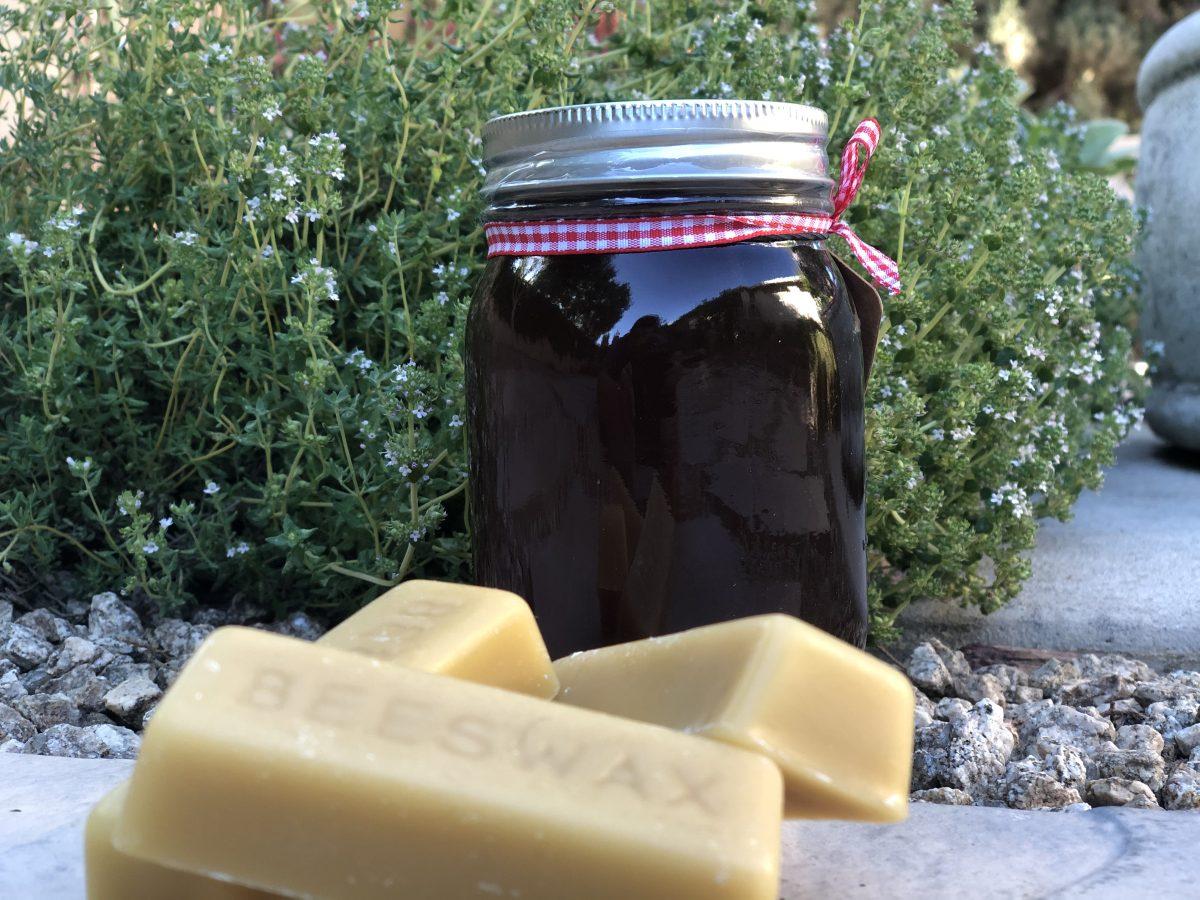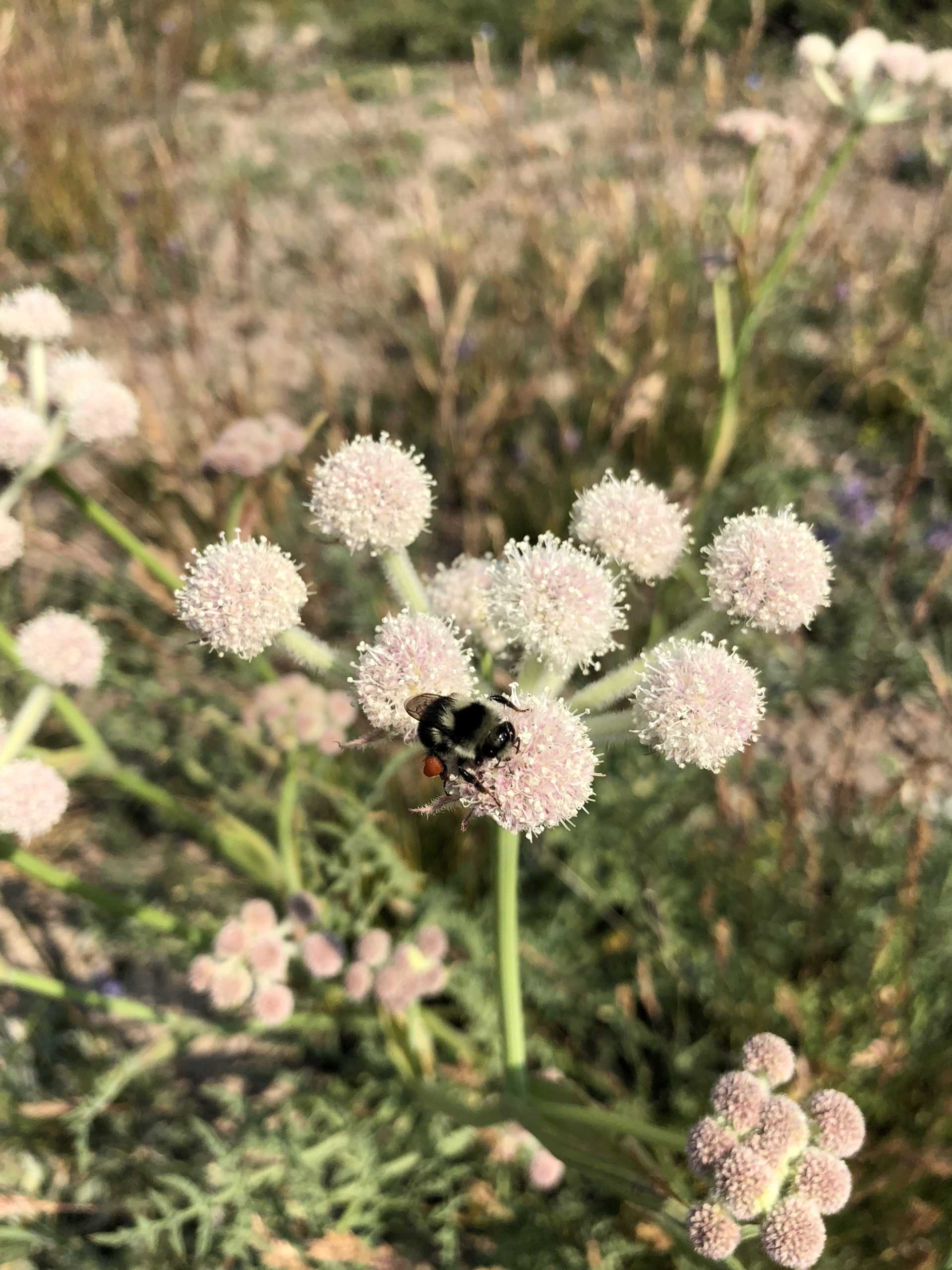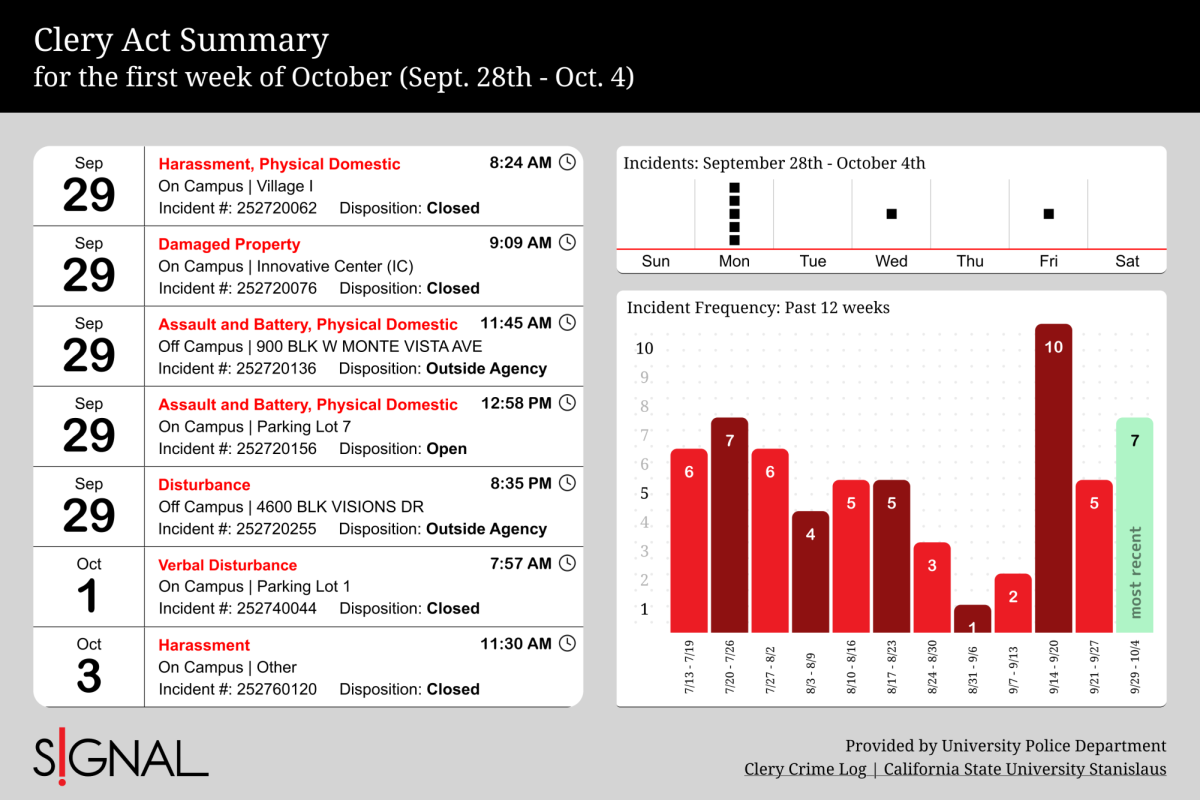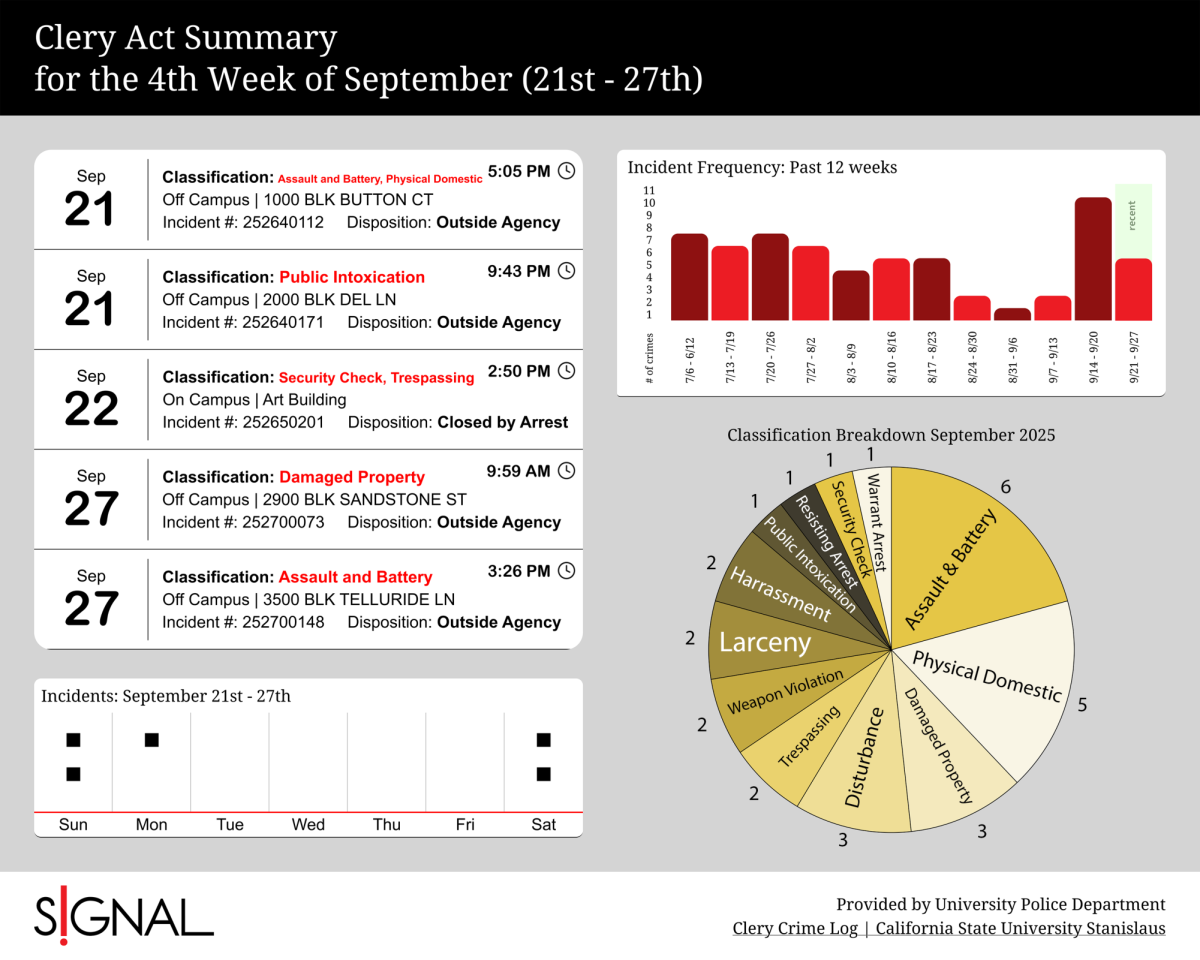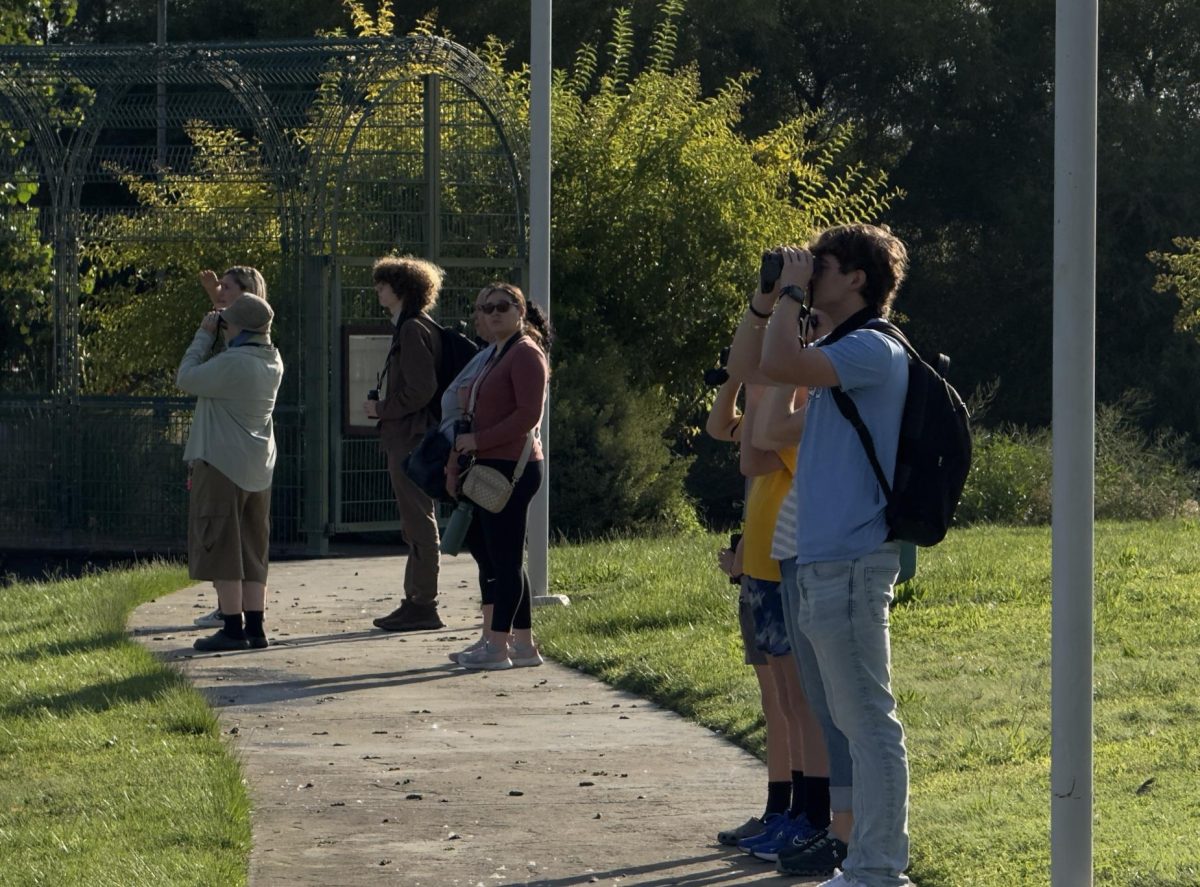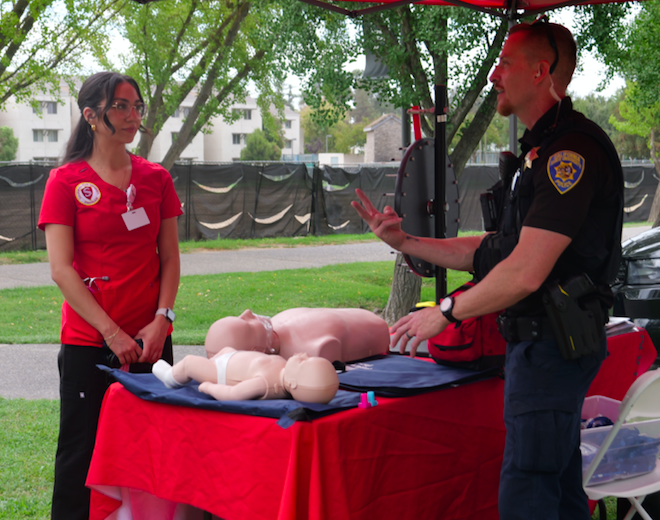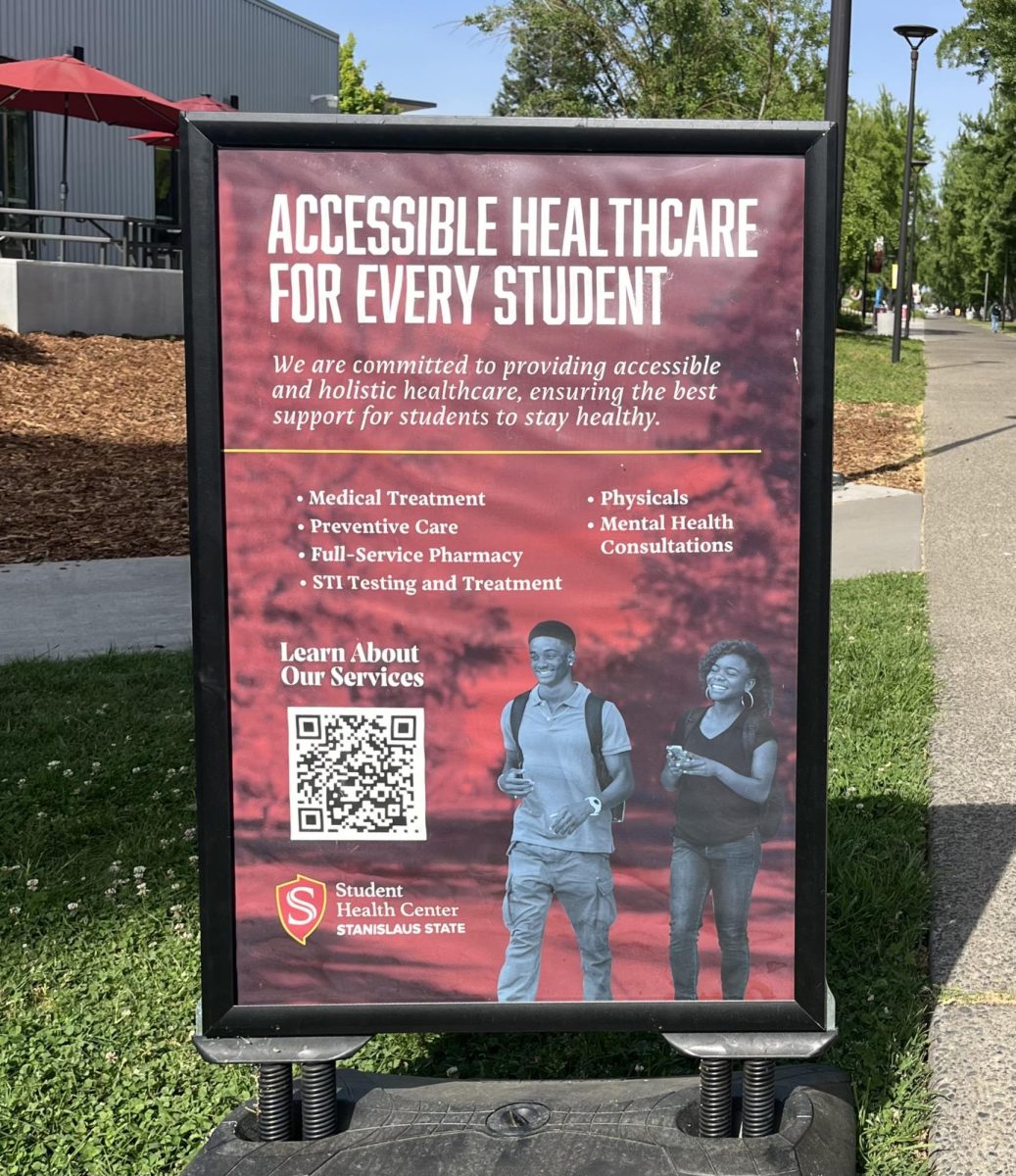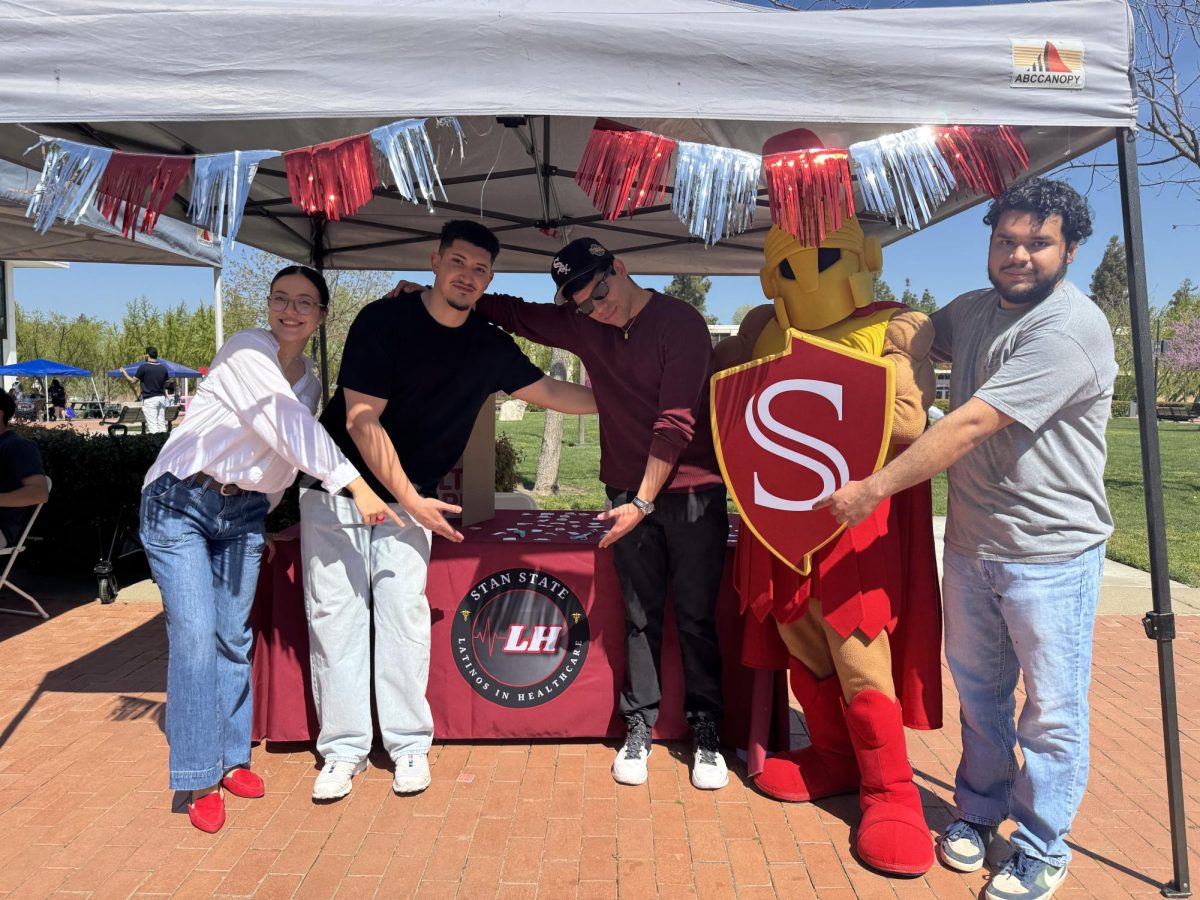In recent weeks, the high winds here in Stanislaus county have potentially wreaked havoc on the lives of those with allergies. Although there are over-the-counter options, there are much tastier options that have been said to help with those pesky allergies. Honey can help to alleviate allergy symptoms like an irritated throat or a cough. Instead of relying solely on a little allergy pill every day, a spoonful of local honey can also help to alleviate the annoyance of allergies.
Local honey provider Monez Apiaries is about a mile down the road from CSU Stanislaus on Monte Vista and Quincy. They provide an affordable, delicious and friendly source of local honey. The company works in honey sales, soap sales, crop pollination and the sale of queen bees.
Many people use honey to alleviate their allergies while others partake simply because it tastes great and as such works as a sweetener in all sorts of recipes. Sarah Mcgothlen (senior, English) stated, “I love local honey! I have been buying local honey all over the place for a few years. It never goes to waste in my house. We have lavender plants out front and they get swarmed with bees every year, and I just know that honey would be spectacular.”
Henry Masellis enjoys spicy sweet combinations. “Hot honey, honey mixed with hot sauce and maybe a dried chili or two is an amazing condiment. Perfect for chicken, especially fried chicken and really any other food that would benefit from some sweet heat.” Masellis shared a YouTube link for fermented garlic honey.
CSU Professor Stephanie Paterson shared a recipe sticking to the sweet side of flavor rather than the spicy side, a recipe for Honey Spiced Bread.
Caesar Segovia, returning Warrior Grill employee in the fall, has similar tastes as Masellis, stating he usually falls back on a combination of siracha and honey as a basting sauce for BBQ’d chicken wings.
Unfortunately, honeybee colonies are in a decline. According to the National Agricultural Statistic Service (NASS), colony populations have declined, reducing population numbers to the significantly lower ones of the 80s, losing about a million colonies between the years of 2012 and 2017.
Various bee species and other pollinators such as bats, butterflies, and even moths play an important role in pollinating not only beautiful flowers and other plant life, but also the fruit and vegetables we eat as well. The Natural Resource Conservation Service (NRCS) estimates about “three quarters of flowering plants and 35 percent of the world’s food crops depend on animal pollinators to reproduce.”
Fortunately, there are some things we can all do to help out the bee populations in our area, small things like planting native plant species such as Lupin, Native Salvias, or Milkweed or other plants that get the attention of pollinators in our home gardens. Some programs like the UCCE Master Gardeners of Stanislaus County “promote home gardening with scientifically based information,” explained my aunt and master gardener Bonnie Jones-Lee.
This relatively new program to Stanislaus County began in 2019 and is a great source of information for anyone who is seeking easily available and dependable advice on how to help conserve water, practice sustainable gardening, and/or work to reduce green waste, which all contribute towards a healthy environment. The master gardeners work to improve the local community and answer any questions people may have. You can find the masters in their booths at local farmers markets, on YouTube or online/over the phone, happy to answer any questions you may have to the best of their abilities.
The program also has long-term plans, among them, a plan to create a “learning landscape, so that we will have all different types of gardens,” explained Jones-Lee. Some of these gardens include “sustainable water use gardens, sensory gardens, cut-flower gardens, vegetable gardens, a rock garden…we’ve got like ten different gardens, even a small orchard.”
If interested, you can apply and start your journey in becoming a master gardener.
Whether it’s supporting local honey stands, beating seasonal allergies, working with volunteer groups like the master gardeners to improve your home garden or adding some deliciously sweet honey to your favorite recipe, let’s remember that bees and other pollinators are an important part of our everyday lives.
Local Honey, Bee Populations and Gardening Methods to do Your Part
Matthew James Bonzi
•
May 7, 2021
This honey and beeswax are just some of the products that we can thank our local bees for. (Signal photo/Matthew Bonzi)
0
More to Discover

